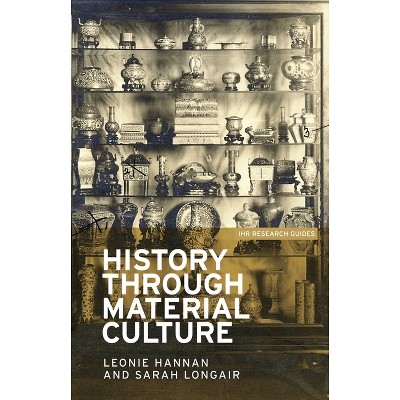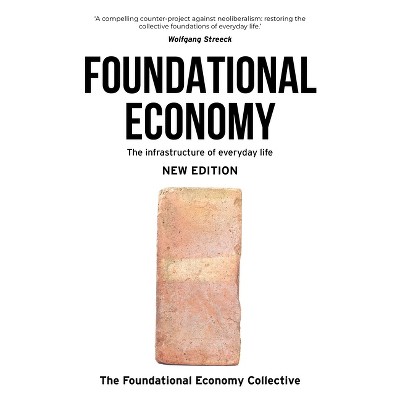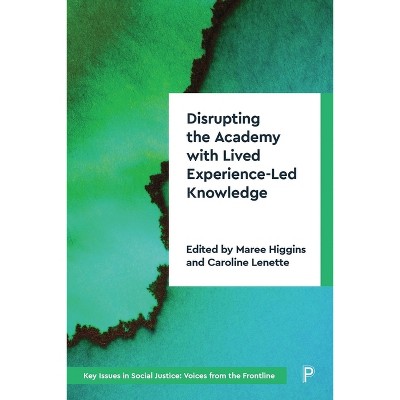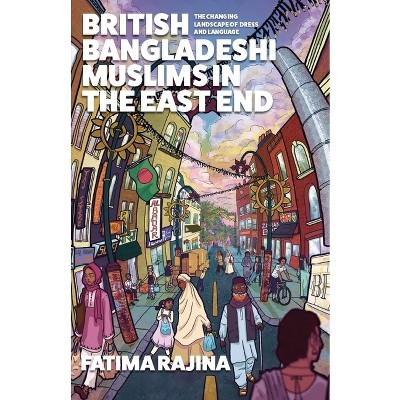Sponsored

Anti-Colonial Research PRAXIS - by Caroline Lenette (Hardcover)
In Stock
Sponsored
About this item
Highlights
- This book centres the perspectives of First Nations and majority-world researchers and provides insightful descriptions of anti-colonial research praxis from around the world.
- About the Author: Caroline Lenette is Professor of Anti-Colonial Research and Deputy Director of the Big Anxiety Research Centre at the University of New South Wales
- 246 Pages
- Social Science, Sociology
Description
About the Book
This book centres the perspectives of First Nations and majority-world researchers and provides insightful descriptions of anti-colonial research praxis from around the world.
Book Synopsis
This book centres the perspectives of First Nations and majority-world researchers and provides insightful descriptions of anti-colonial research praxis from around the world. By engaging with the diverse examples, reflections, and methodological knowledge in this collection, readers will change how they think about research in a definitive way.From the Back Cover
This book is a profound and generous offering to the fields of research and knowledge justice ... an essential guide for reimagining research as a site of justice, accountability, and solidarity.
Mónica G Moreno Figueroa, Professor, University of Cambridge
Juan Tauri, Professor, University of Melbourne This transformational book not only disrupts colonial hierarchies, but also embodies and enacts different ways of knowing and doing.
Christina Clark-Kazak, Professor, University of Ottawa How can anti-colonial research methodologies be transformative and achieve knowledge justice? This book brings together leading scholars from around the world to share methodological knowledge grounded in First Nations and majority-world expertise and wisdom. The authors challenge western-centric and colonial approaches to knowledge production, redefining the possibilities of what we can achieve through social research. The First Nations and majority-world perspectives highlighted here share a common aim of disrupting established beliefs about research methodologies and unquestioned norms in the academy. Authors in this edited collection describe how they draw on Indigenous knowledge systems, feminist frameworks and creative methodologies as forms of anti-colonial research praxis. Spanning development studies, geography, education, sexual and reproductive health, humanitarian studies and social work, the authors reflexively discuss the specific factors shaping how they engage in research ethically. The book reimagines social research through an anti-colonial lens, concluding with a set of provocations for anti-colonial research praxis that situate this important work in the context of ongoing colonial violence and institutional constraints. This book is an essential guide for researchers and scholars within and beyond the academy on how anti-colonial research praxis can produce meaningful outcomes, especially in violent and troubled times.
Review Quotes
'This book is the perfect accompaniment to Professor Linda Tuhiwai Smith's 1999 challenge to the social sciences to 'decolonise' its knowledge production activities. By combining works that centre Indigenous, feminist praxis, and creative approaches to the research paradigm, the book offers established, post-graduate and undergraduate scholars a framework for carrying out anti/decolonised and empowering research praxis.'
Professor Juan Tauri, University of Melbourne
Professor Mónica G Moreno Figueroa, University of Cambridge 'Anti-Colonial Research Praxis: Methods for Knowledge Justice is transformational. It not only disrupts colonial hierarchies, but also embodies and enacts different ways of knowing and doing. The book invites readers to act in solidarity by resisting epistemic injustice and reframing research in generative and creative ways. Anti-Colonial Research Praxis is an essential resource for students, instructors and researchers both in and beyond academia.'
Professor Christina Clark-Kazak, University of Ottawa
About the Author
Caroline Lenette is Professor of Anti-Colonial Research and Deputy Director of the Big Anxiety Research Centre at the University of New South WalesShipping details
Return details
Trending Non-Fiction











